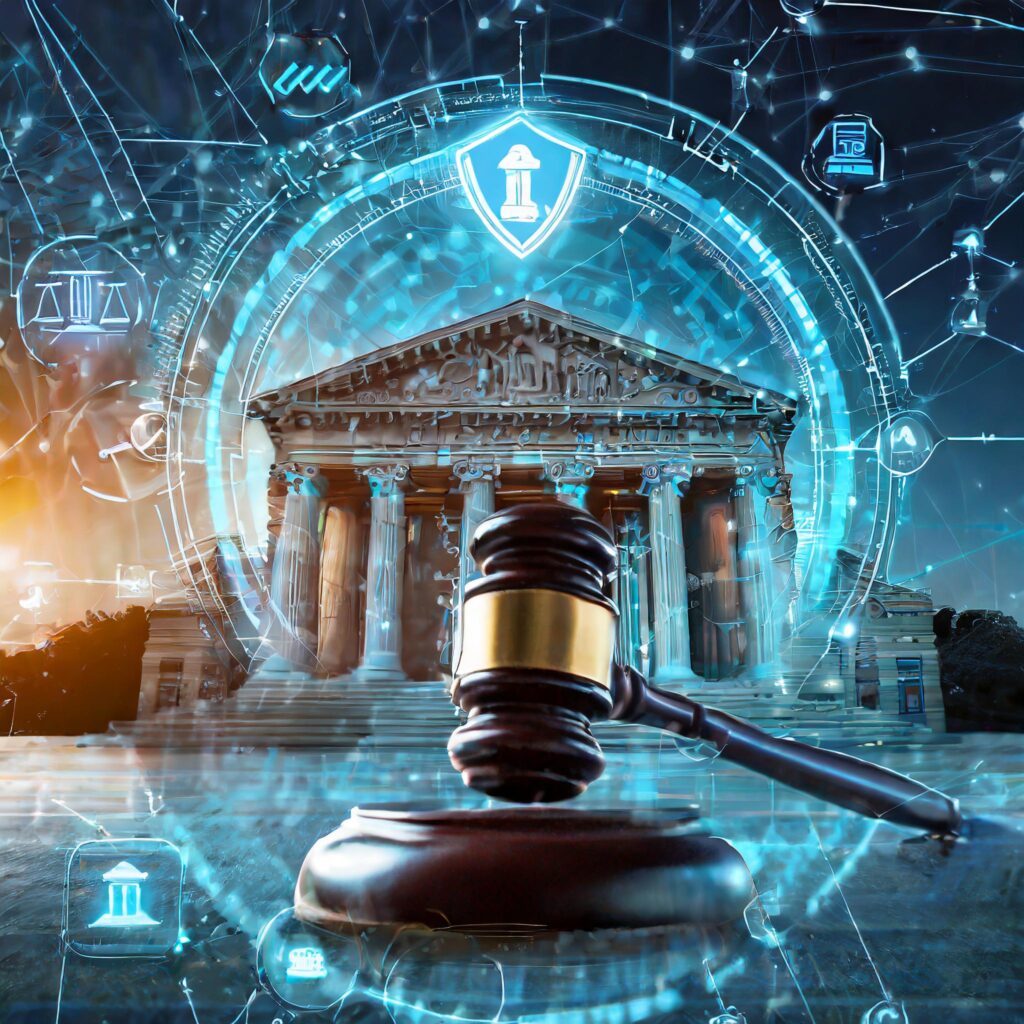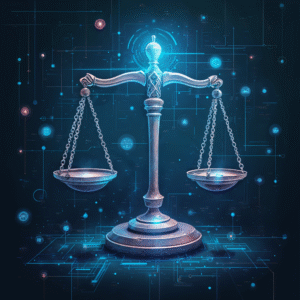
AI is transforming the legal profession
Legal work has been identified as a ripe target for AI disruption many times before, with warnings of artificial intelligence ousting lawyers dating as far back as 2011. But over the years, this technology has served more as an aide to lawyers rather than a replacement. Here’s some of the ways AI is being used in the legal industry.
Artificial intelligence (AI) and generative AI are reshaping the way we work, learn, and create. From automating mundane tasks to creating content for social media and marketing. But where Ai gets interesting is when it starts to automate services. As business service Ai’s have spread like wildfire through business sectors, the legal services is bound to adopt and change. The landscape of legal services is about to change forever.
Ai is empowering legal professionals across every industry and domain. These technologies enable providers to accomplish more with greater efficiency. However, is the legal industry ready or accepting of the influence that Ai brings to an industry where oversight is vital? What skills and strategies are essential for Ai’s to meet compliance and at what point does it replace the legal providers key roles and duties.
To answer these questions, we must ask about the perspectives of the current and future state of AI in their industry. We also asked them about the areas where AI has the most potential to help meet our goals, and if AI would hinder our progress in the same areas. We will discuss the implications for legal professionals who want to leverage AI to transform their work and business.


How Is AI Used in the Legal Industry?
AI for growth
By examining both macro- and organizational trends, we inquired with legal professionals about the domains where AI could significantly contribute to achieving the goals of firms and departments, as well as whether AI might impede progress in those same areas. Notably, the majority reported predominantly positive impacts across various domains. They perceive AI as a driving force for growth. Legal professionals in law firms and corporate settings alike view AI as a tool with the potential to facilitate growth opportunities. In the case of law firms, AI minimizes obstacles to launching new services or expanding into different markets. To illustrate, AI has the potential to liberate time for professionals to pinpoint and assess promising markets for expansion. In corporate departments, AI can unburden professionals, allowing them to focus on supporting their organization’s strategic initiatives and growth objectives. To take advantage of all the opportunities that AI offers, and to mitigate the challenges that it poses, legal professionals need to adopt a proactive and strategic approach to the future of work. Here are some of the recommendations we propose:
PAPERWORK AUTOMATION
Large language models, or the underlying system of platforms like ChatGPT, are now capable of reading, analyzing and summarizing large swaths of text, and allows users to quickly sort and classify words in lengthy documents. This helps automate the bulk of paperwork lawyers, paralegals and other professionals in the industry ordinarily spend their time doing.
GPT-4, the largest language model serving as the backbone of ChatGPT and several other generative AI systems, also managed to score in the 90th percentile on the Uniform Bar Exam. These results push the boundaries on not only what AI is capable of doing on its own, but what it can enable in the legal world.
E-DISCOVERY
· In the same way AI can efficiently sort and organize paperwork, these methods can be applied to facilitate e-discovery tasks. E-discovery, short for electronic discovery, is the legal procedure of searching for and retrieving case evidence from digital formats like email, database or social media documents. By using AI tools, legal professionals can search for specific words, phrases or other written evidence within multiple data sources and digital documents at once. This ultimately speeds up the e-discovery and legal processes, plus helps catch pieces of information that may otherwise be missed through manual searches.·
CONTRACT ANALYSIS
· AI tools can also help with contract analysis (a fundamental part of the legal profession), where they review contracts and provide insights into potential risks or compliance issues. Some can even generate legal documents themselves, a process in which a lawyer inputs specific requirements or key details into the tool and the system generates a preliminary draft, which can then be reviewed and refined by human professionals.
DOCUMENT GENERATION
· “Generative AI deals in the stock and trade of lawyers, which is words,” Ben Allgrove, an attorney and chief innovation officer at international law firm Baker McKenzie. He predicts AI will cause a “reshuffling” of the legal industry, where the use of generative AI will be an expectation, not an experiment.
· “I think it would be negligent or unprofessional for any lawyer not to investigate how they can use technologies and advances to deliver a better product,” he added, “in the same way that if a lawyer didn’t use an electronic database to search for cases would be negligent.”
· In some instances, this investigation has already begun. Several prominent law firms, as well as legal departments within major companies, are putting this technology to the test.
· In February 2023, international law firm Allen & Overy entered into an exclusive partnership with a tool called Harvey, which provides thousands of the firm’s attorneys with assistance in legal research, drafting documents and contract analysis. LexisNexis, a long-time data and analytics provider in the legal industry, announced in May 2023 that it created a new generative AI platform using GPT technology and teamed up with some of the biggest law firms in the United States, including Baker McKenzie, Foley & Lardner and Reed Smith. And several Fortune 50 companies, like Microsoft and Ford Motor, as well as top law firms like DLA Piper and Kirkland & Ellis, have tested a tool created by Casetext called CoCounsel.
· This software isn’t doing anything that attorneys or paralegals can’t do themselves. It’s just able to do it faster and more efficiently than any human is physically capable of doing it — posing both time and cost-saving potential.





